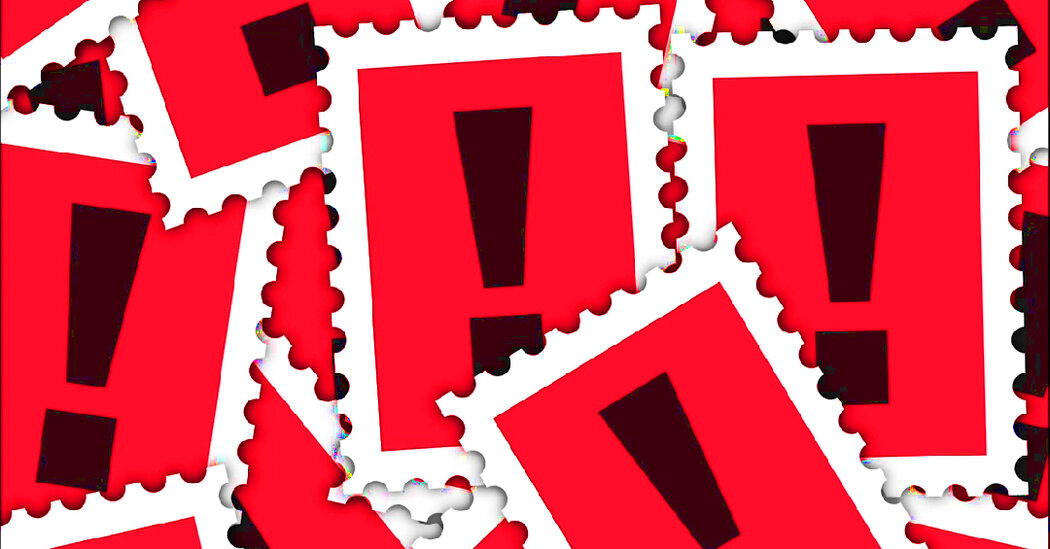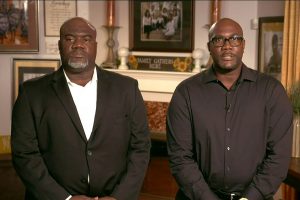In the Trump era, news doesn’t break, it invades. It doesn’t respect nights or weekends.
Many journalists live at the whim of President Trump’s Twitter feed. A rattled off Friday afternoon tweet from Mr. Trump about banning TikTok or a late night hint of an executive order means a weekend of wild goose chases around answering a fundamental question: Can he even do that?
It’s not just journalists who feel this exhaustion. Over the last four years I’ve had countless conversations where friends, family, sources and random acquaintances remark that they’ve felt forced to learn about the minutiae of the government during the Trump administration: the Hatch Act, the emoluments clause, the parliamentary procedure of impeachment. Lately we’ve added epidemiology, medical supply chains and antigen testing.
This sudden literacy is not a result of a newfound passion for civics but a reaction to a torrent of lies and disinformation from the president and his associates. People are confused and scared. Norms and institutions they took for granted are under threat. They want to know: Can he even do that?
But the exhaustion feels more acute in recent days. For instance, Mr. Trump’s effort to cripple the U.S. Postal Service by denying it essential funding and by installing loyalists in executive positions who are behind cutting overtime and removing sorting machines and collection boxes. It’s an attempt, by the president’s own admission, to influence the November election by suppressing mail-in voting. The president has also tried to suggest that voting by mail is a new phenomenon (it is absolutely not).
Then there’s Mr. Trump’s choice to float the racist and baseless suggestion that Kamala Harris might not meet the citizenship requirements for the vice presidency, despite her being born in California. Other Republicans have followed suit and tried to dispute that Ms. Harris is Black. It’s an attempt that is, as my colleague Jamelle Bouie wrote, destined to fail. But the attacks are not really about winning in the so-called marketplace of ideas.
The examples are everywhere. Like Mr. Trump’s musings that he might look into a pardon of Edward Snowden (who he once called a traitor), or his trial balloon tweet about postponing the presidential election. Or his suggestion Monday that he could run for a third term.
Mr. Trump’s recent interview with Axios’ Jonathan Swan was a master class in flooding the zone. In just over 30 minutes the president peppered Mr. Swan with misleading charts about the coronavirus response and claims that it was under control, he bungled the history of absentee voting, he broke news that he’d reduce troop levels in Afghanistan by half and he tossed out claims about the Civil Rights Act. Despite Mr. Swan’s persistent and admirable grilling and calling out of the president’s lies, a number of Mr. Trump’s claims (including one about climate change) slipped past unchallenged. Had Mr. Swan rebutted each one, the conversation would have ground to a halt — there were simply too many lies per minute.
It’s exhausting and deliberate, part of a strategy best explained by the former Trump strategist Steve Bannon to “flood the zone” with garbage information. Vox’s Sean Illing detailed this in February, suggesting that the strategy was one reason that Mr. Trump’s impeachment did little to change public opinion of the president.
Flooding the zone, Mr. Illing wrote, “seeks to disorient audiences with an avalanche of competing stories. And it produces a certain nihilism in which people are so skeptical about the possibility of finding the truth that they give up the search.” It is, as many have noted, a form of modern censorship and has an effect on the media, causing journalists to waste time not just chasing lies but also repeating them. Each time we speak out against a lie — especially if we’re not careful in how we frame it — we risk also giving it the oxygen it needs to spread.
Through that lens, a survey of the news is distressing. Stories about Mr. Trump’s ploy to defund the Postal Service are front-page news not just nationally, but also in many local papers.
This is journalism doing what it’s supposed to do: ringing the alarm bells. Still, it’s hard not to despair over just how much time and energy newsmakers and consumers are forced to spend defending things that shouldn’t need defending. Kamala Harris is an American born in Oakland, Calif. A functional, funded U.S.P.S. is a vital public service. Millions of people vote by mail and have since the Civil War.
Here’s where it gets tricky. There’s no perfect solution for how to react to such brazen attempts to flood the zone. Saturated coverage can backfire or devolve into misinformation.
Already, important reporting around the Postal Service has been cheapened by viral photographs of post box graveyards that turned out to be refurbishment plants. Similarly, rumors from anonymous post office employees muddy real reporting and allow the White House and its allies to cast aspersions on legitimate concerns about suppressing votes via mail.
In the case of the Postal Service, the stakes are so high that perhaps the media’s strategy is to flood the zone right back. By setting expectations with audiences for how election-night returns will be different during a pandemic. And by repeatedly and loudly defending those institutions that we had assumed we’d never have to defend. In Missoula, Mont., where I live, the Postal Service was slated to remove a number of boxes downtown and near the university and paused only after a story from a local NBC reporter.
It will mean extremely careful coverage. The Washington Post media columnist Margaret Sullivan suggested as much in a call to arms to journalists on Saturday. “Let’s crank up the volume and do our jobs. Democracy itself depends on it,” she wrote.
It will be exhausting. Other corruption or pandemic stories may go uncovered as a result. Even then, the scandal still may not penetrate pro-Trump bubbles, reaching those who need to hear it most.
For the rest of us, the best way to combat zone flooding is simply to be mindful that it’s happening to us. And to prepare ourselves. When your opponents flood the zone, engaging with them can be an elaborate trap. Which is why it must be done carefully and on your terms, not theirs. Mr. Swan’s interview with President Trump was most effective when he challenged him with a puzzled or a dumbfounded expression precisely because it signaled to the viewer just how outlandish the answers were.
Mr. Trump’s alternate reality should not be tolerated just because he’s the president (this is different, it should be said, than taking him seriously). There are not two sides to voter suppression. Just as there isn’t a case against Ms. Harris’s citizenship. Nor is there any legitimate case that Mr. Trump is owed a third term.
It will be an exhausting, uphill struggle. There will be more push alerts, more tortured conversations explaining to wayward family members via Facebook comments why the post office is a public good. Fighting the flooding of the zone will take up time better spent elsewhere. It will feel unfair and perhaps even dangerous — those who are able may ultimately need to take the risk to vote in person during a pandemic, putting bodies on the line to fight disinformation. And it might mean showing up in the streets (with proper pandemic precautions).
Mr. Trump is a master at flooding the zone. But he’s not the only one who can do it — voters can flood the zone, too. At the polls in person and, safely and legally, by mail.
The Times is committed to publishing a diversity of letters to the editor. We’d like to hear what you think about this or any of our articles. Here are some tips. And here’s our email:[email protected].
Follow The New York Times Opinion section on Facebook, Twitter (@NYTopinion) and Instagram.



















